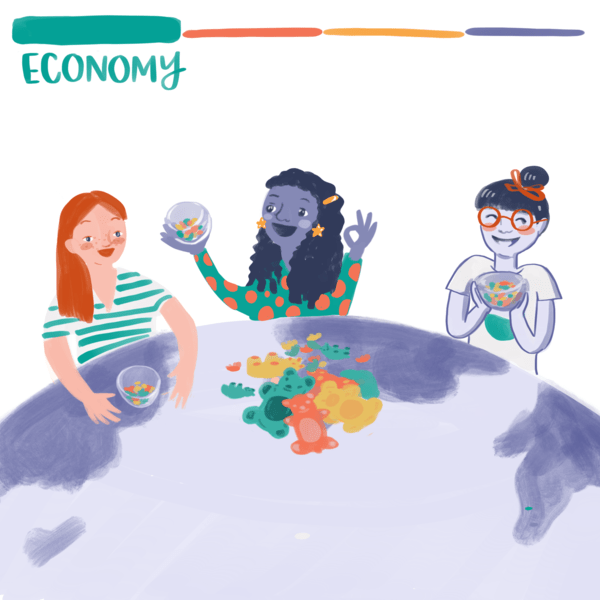
The economy benefits people and the environment
#Economy
The economy of a sustainable and just city focuses on the creation of social, cultural, ecological and other forms of value that benefit people from all walks of life. The inclusive and fair allocation of resources ensures an economy that works for the common good. Production and consumption are organised so as to minimise negative externalities, cultivate non-consumerist values and reduce unnecessary demand. City-makers challenge inherited neoliberal narratives that overemphasize GDP growth, and are open to post-growth and post-capitalist approaches. This openness facilitates experimentation with socially and environmentally innovative concepts such as regeneration, care, sharing and solidarity.
Inspirational example
Social Solidarity Economy, Barcelona
The social solidarity economy (SSE) in Barcelona draws on long-standing traditions of collaboration, mutual aid, commoning and cooperativism, and is an important force for economic transformation in the city and across Catalunya.
A 2016 study reported a total of 4,718 separate socio-economic initiatives dedicated to a more equitable and sustainable economy in the city, many of which are actively networked at neighbourhood, city and regional scales. Against a background of rising unemployment in the city, employment in workers’ cooperatives rose by more than half between 2009 and 2014. Support from Barcelona's municipal government has accelerated since the citizens' movement Barcelona En Comú came to power in 2015. A dedicated Impulse Plan includes targeted financial support for new SSE projects and pays particular attention to addressing structural inequalities. The city administration has also taken action against corporate dominance of key sectors such as water and housing, including efforts toward the remunicipalisation of energy services.

Avenues for action
You might be wondering, what everyday actions can I take to put all this theory into practice? Take a look at the avenues for action, below, for some practical guidance.








